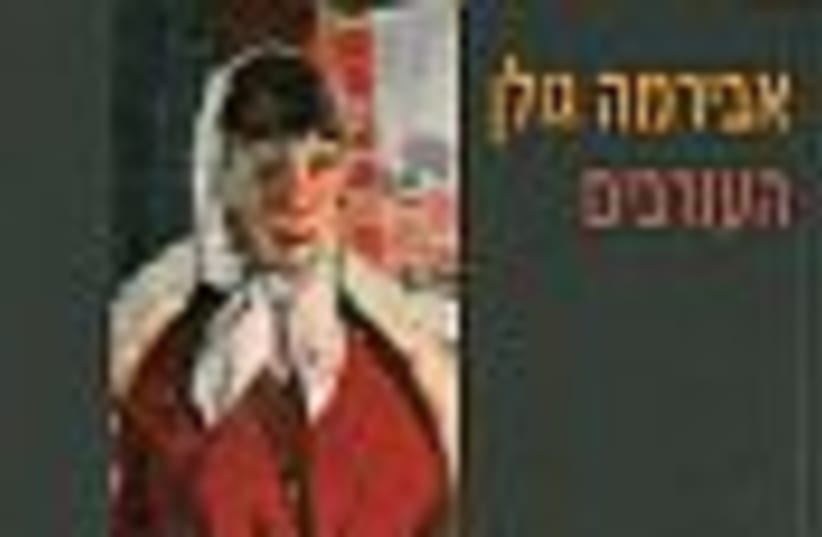Avirama Golan is well known in Israel as a leading literary personality. She hosts a weekly program about books on television and writes articles on a wide range of political and general topics.
In her debut novel, Ha'orvim (The Ravens) - recently awarded the Book Publishers' Association's Golden Book Prize for 2005 - she tells the story of two families, placing them firmly in historical and geographical context. By following the lives of her characters, the history of the State of Israel comes to vivid life. [To read an excerpt from Ha'orvim, click here]
Although men are depicted in a sensitive and intelligent way in Golan's novel, it is the women who feature most prominently. By fulfilling their often trivial and dull duties, they enable the wheels of society to keep turning, allowing the men to work, fight, and fulfill their destinies.
The book follows the story of Genia, who comes to the newly-established state of Israel from Eastern Europe as a young woman. She lives in a small provincial town and loses her son in action, ending her days as a lonely and embittered woman. The story of her life is banal enough, but her character is depicted through a series of sensitively written interior monologues, the fruit of discerning observation. Genia's conversations with her family as well as those with herself reveal the author's sensitivity to language and penetrating insights into its nuances.
Genia's daughter, Rivkaleh, an ugly duckling who discovers the charms of promiscuity while doing her military service, eventually finds happiness of a kind in the arms of a married man. Although a less attractive character, she is portrayed sympathetically. Her relations with her parents, her brother, and the various army officers who bed her are far from straightforward, and together with her we travel the road to her ultimate realization of her own strength and attainment of peace.
Her brother, Rami, is also portrayed as a genuine and believable character, and both his life and military service, as well as his thoughts, are described in a way that is almost poetic, sparing the reader the bravado and machismo that often accompany descriptions of this kind.
The third main character in the book, Didi, is an assistant television producer who lives and works in Tel Aviv. The reader is able to observe her complex - and generally problematic - relationships with her colleagues and family. These include her uncommunicative husband and distant pre-pubescent daughter, her boss at the TV station, a junior colleague with whom she has a brief affair, and her parents, who live on a kibbutz. Didi's relations with the latter, who come across as the possibly misguided pioneers who sacrificed their personal lives to build the State of Israel, are particularly ambivalent. Didi made a point of leaving the kibbutz and the communal way of life at the earliest possible opportunity in order to make a life for herself in Tel Aviv, but whether or not she has found happiness is debatable.
This is a book which depends to a great extent on the quality of the language and the way it is used to portray the speech and inner lives of the characters. Thus, we encounter the mangled grammar and Yiddish phrases used by Genia, the clich s and rigid thought-patterns of Didi's parents on the kibbutz, and the modern slang employed by Didi and the members of the Tel Aviv media world. Through these characters the book provides a description of some of the people who comprise Israel's varied population, portraying the country's everyday life currently and in the past. This is not a page-turner or a novel of suspense, yet one continues to read, not knowing what to expect from these quirky, yet familiar characters.
The book concludes with a denouement which is full of surprises. Through Didi's work as a television producer most of the principal characters connect with one another. Even the ravens, who provide the metaphor that runs through the book, have a sinister role to play at the end. But whether the conclusion is expected or not is almost beside the point. The fascination exerted by this book comes from its characters and the writing itself, rather than from the plot.
The writer is a translator, editor, and author.
| More about: | Israel, Tel Aviv, Yiddish language |
